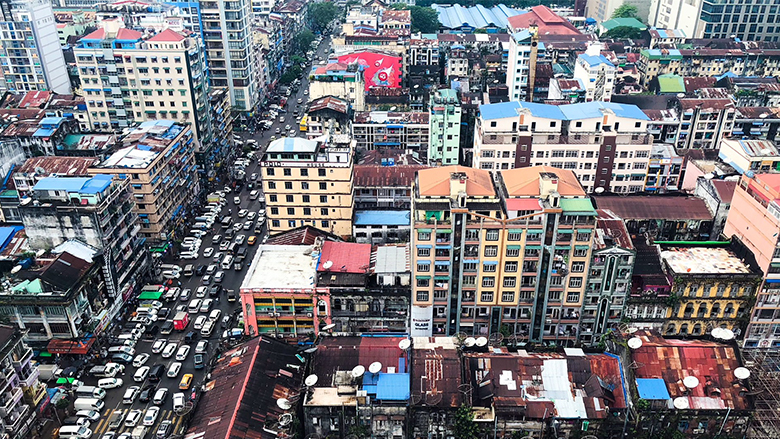Urbanization – Sociology Notes – For W.B.C.S. Examination.
নগরায়ণ – সমাজবিজ্ঞান নোট – WBCS পরীক্ষা।
Urbanization is pervasive and recent phenomenon. In present global atmosphere, all nations undergo with the challenges of environment, social, transportation, economy in their respective cities. These issues are commonly occurred in developing countries due to the difference of development in cities and villages (Latif Fauzi, 2007).Continue Reading Urbanization – Sociology Notes – For W.B.C.S. Examination.
Most of countries focus on development of cities instead of rural areas. Consequently, the urban areas are equipped with infrastructure, public facilities as well as provide employment opportunities compared to the rural areas. Therefore inhabitants are more attracted to migrate in cities to avail hi tech facilities, enhance their lifestyles and ultimately these activities raise numerous urbanization issues. Cities have major role to enhance economic growth and prosperity. The sustainable development of cities largely depends upon their physical, social and institutional infrastructure. An urban area is spatial concentration of people who are working in non-agricultural activities. The essential characteristic is that urban means non-agricultural. Urban can also be explained as a fairly multifaceted concept. Criteria used to define urban can include population size, space, density, and economic organization. Typically, urban is simply defined by some base line size, like 20 000 people (Long 1998).
Concept of urbanization: The term Urbanization is well explained by Nsiah-Gyabaah as the change from a rural to an urban society which involves an augment in the number of people in urban regions during a particular year. Likewise, Gooden argued urbanization as the immigration of people in huge numbers from rural to urban areas and this process happen due to the concentration of resources and facilities in towns and cities. Other theorists like, Reynolds (1989) characterized urbanization as the development of the population and cities, so that higher proportion of population lives in urban areas. Normally, urbanization is directly associated with innovation, industrialization, and the sociological process of good reason. Urbanization process had been started during the industrial revolution, when workforce moved towards manufacturing hubs in cities to get jobs in factories as agricultural jobs became less common. Theoretical studies have demonstrated that Urbanization is the result of social, economic and political developments that lead to urban concentration and expansion of big cities, changes in land use and revolution from rural to urban pattern of organization and governance. Urbanization is a process in which an increased proportion of society lives in cities and the suburbs of the cities. Historically, it has been strongly related with industrialization. Industrialization is processes that widely utilize inanimate sources of energy to improve human productivity.
Global urban population is growing at rapid rate from 17% in 1951 to 20% in 2001 and expected to increase 41% in 2020. It is observed that developing countries urbanize faster than industrialized nations because they have more issues of urbanizations. It has been documented in studies that Cities and towns operate as mechanisms for growth, often driving much of people’s cultural, intellectual, educational and technological accomplishment and modernization. Though, in contemporary living style of people of new, low-density approaches to urban development results in better consumption of energy, resources, transport and land, in this manner raising greenhouse gas emissions and air and noise pollution to levels that often surpass the legal or suggested human protection limits. Overall consumption, energy use, water use and waste generation go along with an increasing number of urban families.
Urban environmental management, is also the big business of local governments, play major role to offer services; civil society, and promotes citizens health and its rights to provide hygienic, liveable environment. The private sector can increase the efficiency and effectiveness of service delivery. Currently, cities are taking on roles that expand far beyond the conventional provision of infrastructure and services. A theoretical move may be perceived (European Environment Agency, 1996). The most remarkable immediate change accompanying urbanization is the fast change in the existing character of local livelihoods as agriculture or more traditional local services and small-scale industry give way to contemporary industry and urban and related commerce, with the city drawing on the resources of an ever-widening area for its own nourishment and goods to be traded or processed into manufactures (Dear, 2000).
When referring to the pre-industrial city, Wheatley (Wheatley, 1971) described urbanism as “that particular set of functionally integrated institutions which were first devised some 5,000 years ago to mediate the transformation of relatively egalitarian, inscriptive, kin-structured groups into socially stratified politically organized, territorially based societies”. The stress on institutional change relates the growth of cities to a major socio-political reorganization of society, which he considers as a main constituent in the development of society. Correspondingly, Childe offers a listing of ten characteristics of an urban civilization. These may be separated into five primary characteristics referring to primary changes in the organization of society and five secondary features indicative of the presence of the primary factors (Childe, 1951).
Our own publications are available at our webstore (click here).
For Guidance of WBCS (Exe.) Etc. Preliminary , Main Exam and Interview, Study Mat, Mock Test, Guided by WBCS Gr A Officers , Online and Classroom, Call 9674493673, or mail us at – mailus@wbcsmadeeasy.in
Visit our you tube channel WBCSMadeEasy™ You tube Channel
Please subscribe here to get all future updates on this post/page/category/website



 Toll Free 1800 572 9282
Toll Free 1800 572 9282  mailus@wbcsmadeeasy.in
mailus@wbcsmadeeasy.in


















































































































